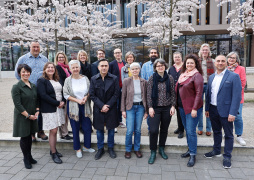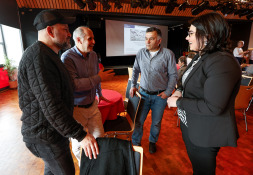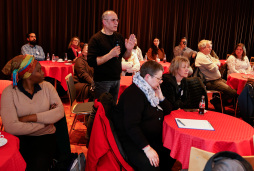Stadtlabor Demografie: Second meeting in Dinslaken
The second meeting of the Körber Foundation's Urban Laboratory has now taken place in Dinslaken // Topic: Older people with an international family history
Bocholt. As part of the city laboratory demographic future opportunities, those responsible for the administration for the topics of demographic change and age from all over Germany now travelled to Dinslaken.
The main topic of the city lab: older people with international family histories, e.g. the first generation of guest workers. How do they want to grow old? What do they need for good ageing and what must the municipality do to make this possible? The participants from all over the country dealt with these and other questions.
They took part in breaking the fast in a mosque, visited a multicultural home for the elderly and exchanged views with experts on the topic - with the aim of bringing as many insights as possible back to their communities. The demography officer Annette Hünting-Deckers was there for the city of Bocholt.
Together with the city of Dinslaken, the Körber Foundation invited to a public expert event on the topic of ageing with an international family history. After an academic lecture by Prof. Dr. Uslucan, Professor of Modern Turkish Studies and Integration Research at the University of Duisburg-Essen, various aspects were discussed in depth on a panel. Yasimin Zorlu, managing director of a culturally sensitive care service, and Dr. Tagrid Yousef, head of the social affairs department of the city of Dinslaken, moderated by Karin Haist, programme manager for demographic future opportunities at the Körber Foundation.
The result: administrations, agencies and institutions must become more sensitive to the needs of older people with international family histories. In practical terms, this can be done by promoting diversity in senior citizens' advisory councils or by involving multipliers such as cultural or mosque associations. In this way, the findings can certainly also be used in Bocholt.
The city laboratory offers key actors in the administration for the topics of demographic change and age the opportunity to participate in a three-part workshop series. In a small and exclusive circle, the Stadtlabor focuses on experts, good practice, networking and collegial exchange.





